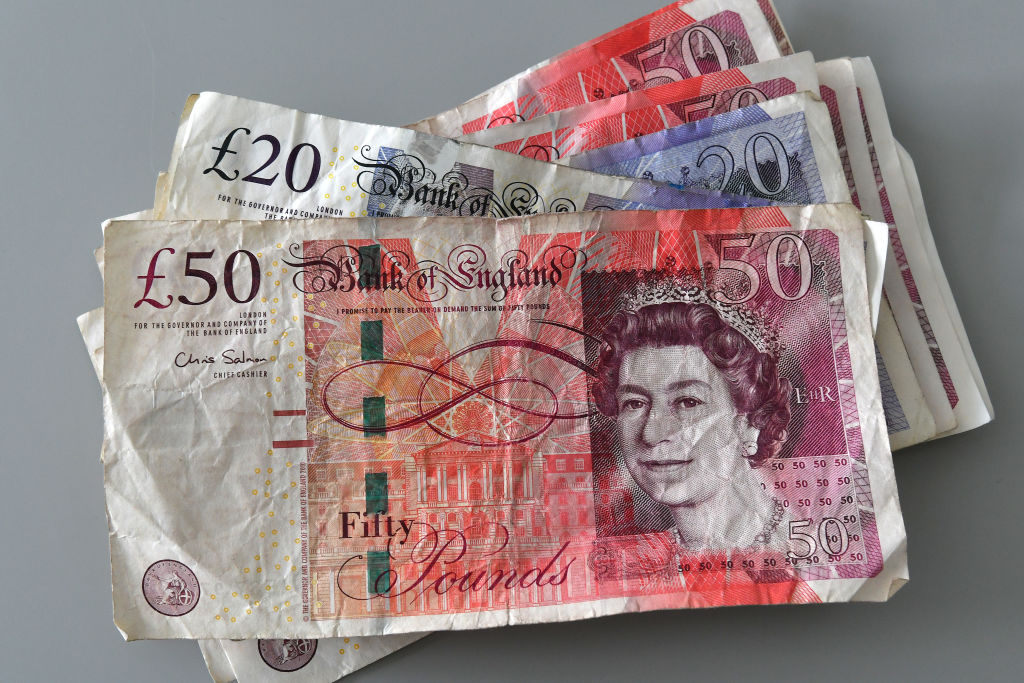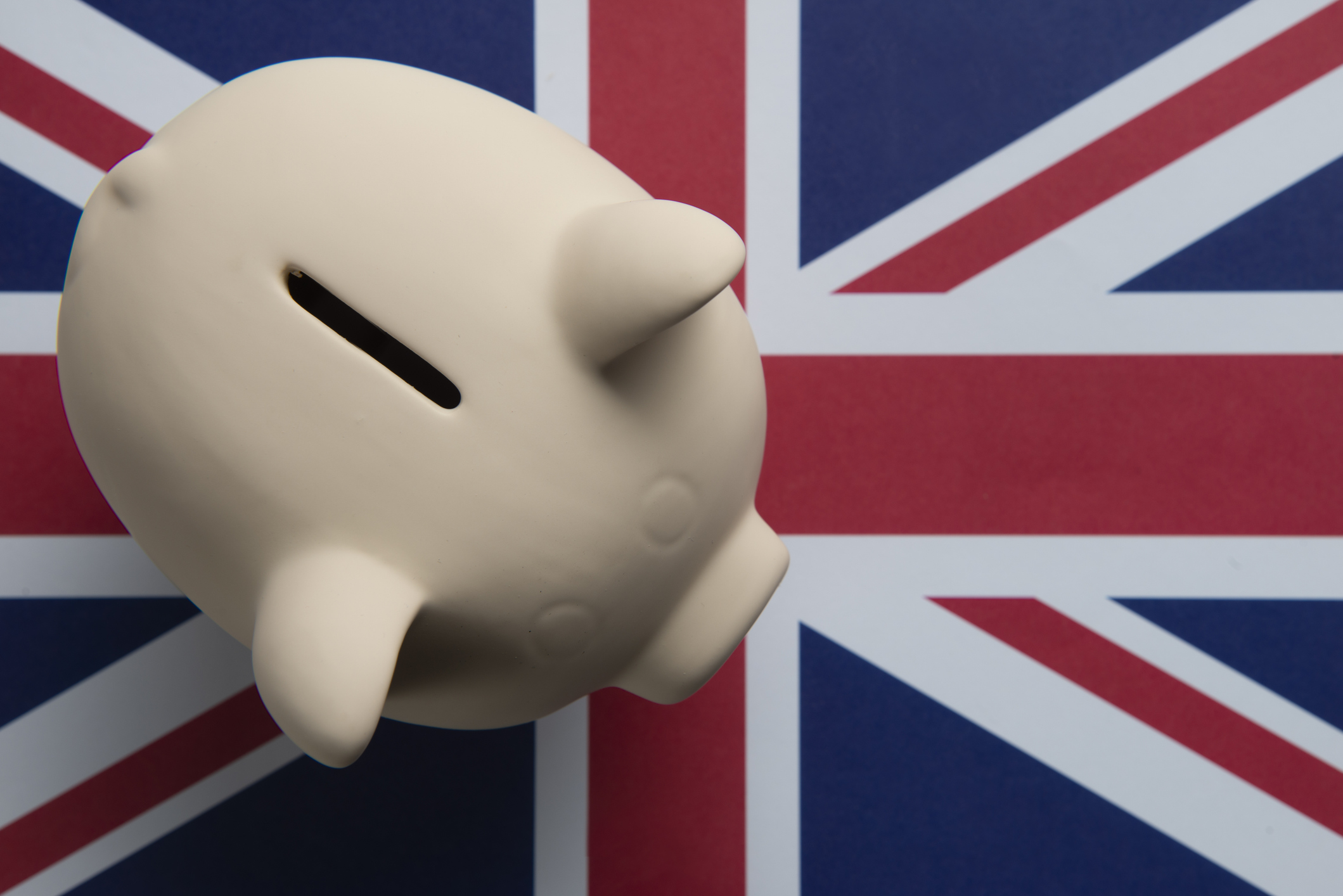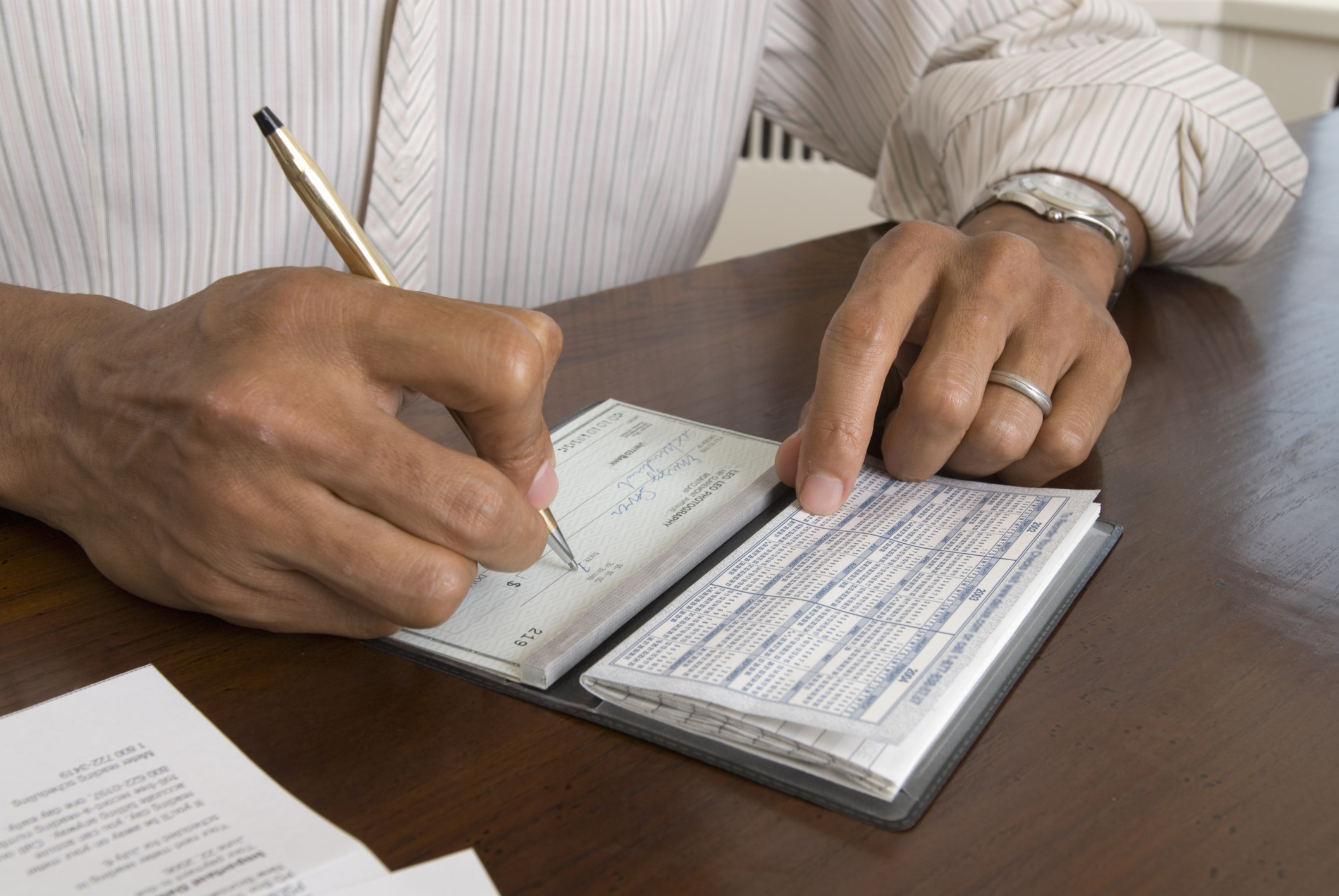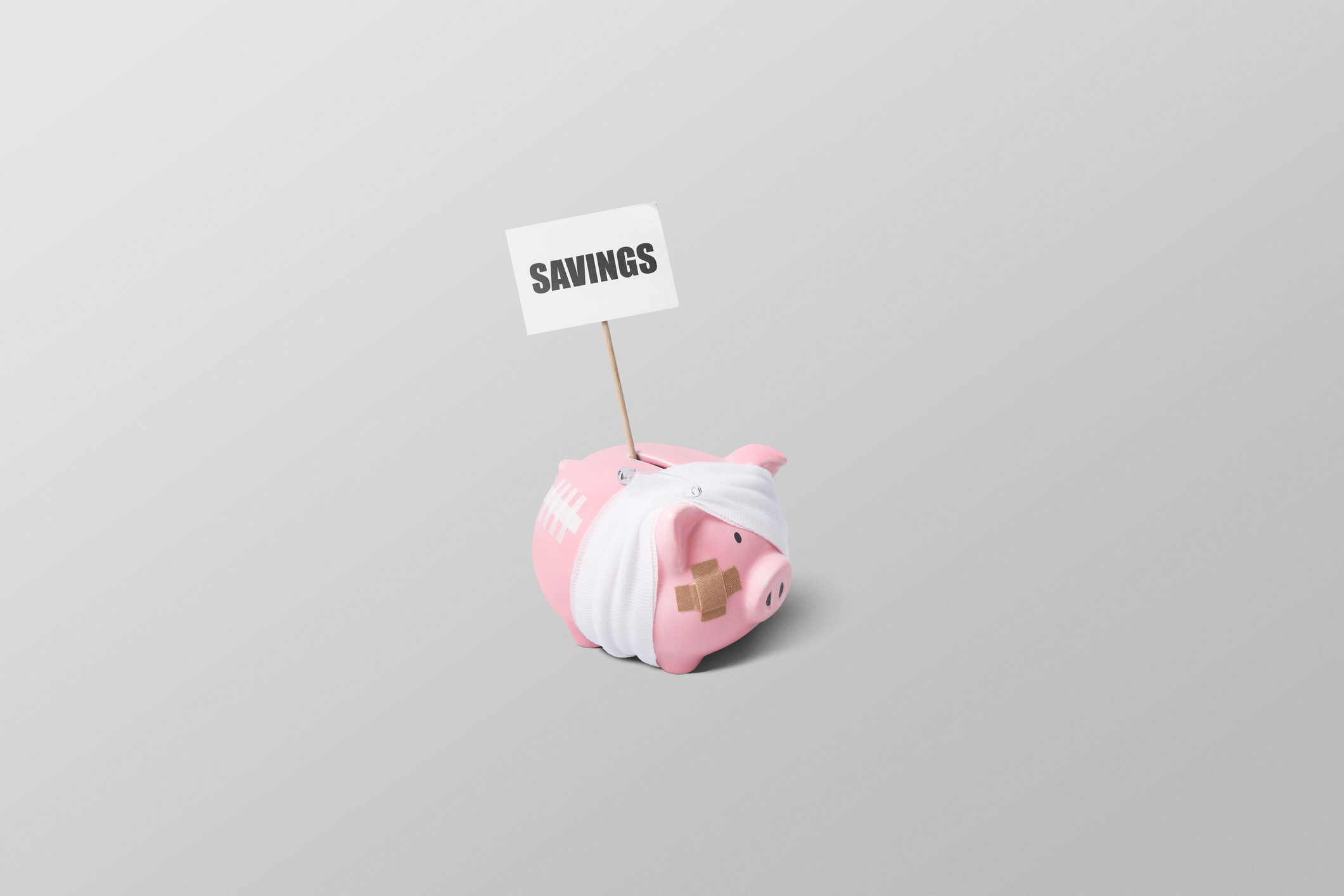What to do with old £20 notes – how to exchange them
We explain what to do with old £20 and £50 notes as they are no longer legal tender in the UK – plus where you can exchange them for new polymer banknotes

Sam Walker

Get the latest financial news, insights and expert analysis from our award-winning MoneyWeek team, to help you understand what really matters when it comes to your finances.
You are now subscribed
Your newsletter sign-up was successful
Want to add more newsletters?

Twice daily
MoneyWeek
Get the latest financial news, insights and expert analysis from our award-winning MoneyWeek team, to help you understand what really matters when it comes to your finances.

Four times a week
Look After My Bills
Sign up to our free money-saving newsletter, filled with the latest news and expert advice to help you find the best tips and deals for managing your bills. Start saving today!
Old paper banknotes potentially worth hundreds of pounds could be lurking in your wallet.
Paper £5, £10, £20 and £50 notes are no longer legal tender after being withdrawn and replaced with polymer versions.
These modern notes are considered more durable and harder to counterfeit as they feature see-through windows and holograms.
MoneyWeek
Subscribe to MoneyWeek today and get your first six magazine issues absolutely FREE

Sign up to Money Morning
Don't miss the latest investment and personal finances news, market analysis, plus money-saving tips with our free twice-daily newsletter
Don't miss the latest investment and personal finances news, market analysis, plus money-saving tips with our free twice-daily newsletter
However, despite old paper banknotes being withdrawn in recent years, a significant number remain in circulation.
Based on the Bank of England’s latest data, there are over £6.3 billion worth of notes still in circulation that can no longer be used.
This includes:
- 108 million £5 notes worth £542 million
- 59 million £10 notes worth £589 million
- 154 million £20 notes worth £3.08 billion
- 43 million £50 notes worth £2.13 billion
Are paper notes still legal tender in the UK?
Paper notes are no longer accepted as payment. £5 and £10 paper banknotes ceased to be legal tender in 2017 and 2018, respectively. Paper £20 and £50 denominations have not been usable since 2022.
What is legal tender?
According to the Bank of England, the term “legal tender” means that if you offer to fully pay off a debt to someone in a form considered to be legal tender – without any contract specifying another form of payment – you cannot be sued by anyone for failing to repay the debt.
In simple terms, it’s the officially recognised money by law that works as a means to settle a debt or meet a financial obligation. It tends to be the national currency of a country, per Investopedia.
What counts as legal tender in the UK?
If you live in England and Wales, then Royal Mint coins and Bank of England notes are considered legal tender.
In Scotland and Northern Ireland, Royal Mint coins are accepted as legal tender – but not the English banknotes. Both Celtic nations have their own banknotes, issued in the two countries by authorised banks.
As for coins, it’s slightly complicated. For instance, 1p and 2p coins count as legal tender for any amount up to 20p, while 5p and 10p coins are for any amount up to £5. £1 and £2 coins are acceptable for any amount.
You will also find that most of the common payment methods, like debit or credit cards, contactless payments, or paying by cheque, are not legal tender. We look at how to pay with a cheque in a separate guide.
Where can I exchange old banknotes?
There are various places where you can take old paper notes. Depending on where you live, some locations may be easier to access than others.
Banknotes with the late Queen Elizabeth II will remain legal tender, so you don’t need to exchange them for new ones featuring King Charles III.
Any old paper notes you hand in are exchanged for new polymer ones of the same value.
The Bank of England
One option is to take the old paper notes to the Bank of England.
There is currently no time limit when it comes to exchanging them at the central bank. However, you may need to present an original photo ID and proof of address when exchanging notes.
You can do this in two ways:
- In-person: You can swap your old notes at The Bank of England Counter, on Threadneedle Street, London. The counter is open between 9:30am and 3pm on weekdays (excluding bank holidays). Do be aware – even though the last entry is at 2:45pm, you may not be served if it has reached capacity after midday.
- By post: You can also post your old UK banknotes to the Bank, but note that this is done at your own risk and you may want to insure yourself against loss before sending banknotes in the post. You’ll also need to fill in a postal exchange form and send photocopies of your proof of ID and proof of address.
Post Office
There are 53 Post Office branches across the UK that will let you swap your old banknotes for new polymer ones – even if you don’t have a bank account.
You can exchange up to the value of £300 every two years. You will need to show a form of photo ID so the Post Office can keep track of how much you exchange and do not exceed the limit.
These are the notes you can exchange at a Post Office:
- Elizabeth Fry £5 note – ceased to be legal tender on 5 May 2017
- Adam Smith £20 note – ceased to be legal tender on 30 September 2022
- Charles Darwin £10 note – ceased to be legal tender on 1 March 2018
- Matthew Boulton & James Watt £50 note – ceased to be legal tender on 30 September 2022
Find all the participating Post Office branches where you can exchange old notes.
At the bank
Different banks have their own rules in place covering how they handle paper banknotes. While some are happy to exchange them for new polymer notes, others are not.
Banks that let you exchange paper notes will generally allow you to deposit the money into your account with them. Banks and building societies happy to exchange the old notes include Halifax, Lloyds, Nationwide, Barclays, NatWest and Santander.
In some cases, you can still exchange the paper notes even if you don’t have an account with that particular bank, for example, with the Bank of Scotland and Virgin Money.
Can I sell old notes online?
You may find that some of your old notes sell for more than their face value if they are part of special limited runs.
Meanwhile, old paper banknotes with specific serial numbers are sought after by collectors because they’re some of the earliest of that style printed.
Every banknote features a unique serial number to identify and date it with a four-digit prefix.
Those with serial numbers featuring low numbers are generally valuable, for example “CA 01”, followed by a low figure like 000001.
This rule also applies to new polymer notes. Auctioneers Spink and Son held auctions last summer selling some of the earliest printed new King Charles III banknotes with these low serial numbers. One £10 note went for £17,000 while a £20 note sold for £7k.
If you have a collectable note, you don't necessarily have to sell it via auction though. You can sell it online on platforms like eBay or Facebook Marketplace.
However, just because notes are listed as rare on online marketplaces doesn’t mean they are worth that much money. The price of rare notes is determined entirely by the market, and a sale is contingent on finding a willing buyer.
If you think you’ve got a rare banknote, you might want to get it valued by an auctioneer.
Get the latest financial news, insights and expert analysis from our award-winning MoneyWeek team, to help you understand what really matters when it comes to your finances.

Oojal has a background in consumer journalism and is interested in helping people make the most of their money.
Oojal has an MA in international journalism from Cardiff University, and before joining MoneyWeek, she worked for Look After My Bills, a personal finance website, where she covered guides on household bills and money-saving deals.
Her bylines can be found on Newsquest, Voice.Cymru, DIVA and Sony Music, and she has explored subjects ranging from politics and LGBTQIA+ issues to food and entertainment.
Outside of work, Oojal enjoys travelling, going to the movies and learning Spanish with a little green owl.
- Sam WalkerWriter
-
 Should you buy an active ETF?
Should you buy an active ETF?ETFs are often mischaracterised as passive products, but they can be a convenient way to add active management to your portfolio
-
 Power up your pension before 5 April – easy ways to save before the tax year end
Power up your pension before 5 April – easy ways to save before the tax year endWith the end of the tax year looming, pension savers currently have a window to review and maximise what’s going into their retirement funds – we look at how
-
 Brits leave £31.6 billion in savings accounts paying 1% interest or less – do you need to switch?
Brits leave £31.6 billion in savings accounts paying 1% interest or less – do you need to switch?Eight million Brits hold money in savings accounts that pay 1% interest or less, meaning the value of their cash is being eroded by inflation.
-
 Buying vs renting: is is better to own or rent your home?
Buying vs renting: is is better to own or rent your home?The higher mortgage rates of recent years have actually made renting comparatively cheaper, analysis suggests. But there are hidden costs to long term renting.
-
 Hargreaves Lansdown launches first cash ISA – how does it compare?
Hargreaves Lansdown launches first cash ISA – how does it compare?Hargreaves Lansdown is offering an own brand cash ISA for the first time with their new easy-access account. How does the interest rate compare to other products?
-
 Is Britain heading for a big debt crisis?
Is Britain heading for a big debt crisis?Opinion Things are not yet as bad as some reports have claimed. But they sure aren’t rosy either, says Julian Jessop
-
 ‘My NS&I one-year British Savings Bond is maturing – what should I do with my savings?
‘My NS&I one-year British Savings Bond is maturing – what should I do with my savings?Thousands of savers will see their fixed-rate savings accounts mature next month. We consider whether you should stick with NS&I or move to a competitor
-
 How to pay in a cheque
How to pay in a chequeReceiving or writing a cheque has become much less common in recent years as instant bank transfers have grown in popularity. Amid widespread bank branch closures, we explain what to do if you get a cheque, and how you can pay one into your bank account.
-
 ‘Current account coasters’ are leaving billions of pounds languishing in low interest accounts
‘Current account coasters’ are leaving billions of pounds languishing in low interest accountsThe average saver with £10,000 or more in their zero interest current account is missing out on over £1,500 in potential interest payments, new research has revealed.
-
 Best fixed rate cash ISAs – earn up to 4.22%
Best fixed rate cash ISAs – earn up to 4.22%We look at the best fixed rate cash ISAs on the market right now for savers who are willing to lock their cash away for guaranteed tax-free gains